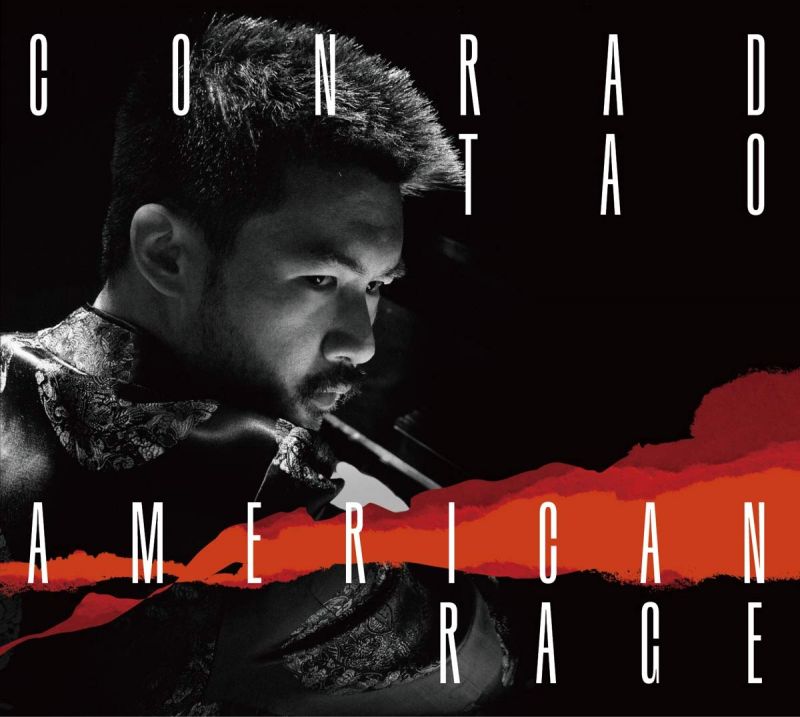American Rage: Copland, Rzewski, Wolfe (Conrad Tao)
View record and artist detailsRecord and Artist Details
Composer or Director: Aaron Copland, Conrad Tao, Frederic (Anthony) Rzewski, Julia Wolfe
Genre:
Instrumental
Label: Warner Classics
Magazine Review Date: 01/2020
Media Format: CD or Download
Media Runtime: 59
Mastering:
DDD
Catalogue Number: 9029535477

Tracks:
| Composition | Artist Credit |
|---|---|
| Which side are you on? |
Frederic (Anthony) Rzewski, Composer
Conrad Tao, Composer Frederic (Anthony) Rzewski, Composer |
| Sonata for Piano |
Aaron Copland, Composer
Aaron Copland, Composer Conrad Tao, Composer |
| Compassion |
Julia Wolfe, Composer
Conrad Tao, Composer Julia Wolfe, Composer |
| Winnsboro Cotton Mill Blues |
Frederic (Anthony) Rzewski, Composer
Conrad Tao, Composer Frederic (Anthony) Rzewski, Composer |
Author: Jed Distler
The social and political issues informing the works and the programming concept of Conrad Tao’s latest release, ‘American Rage’, are unquestionably and painfully relevant today. That said, I hope the pianist forgives my discussing this disc on a purely musical basis. He begins with Frederic Rzewski’s ‘Which Side Are You On?’ from the composer’s Four North American Ballads. Tao navigates the contrapuntal layers and sudden shifts of mood with impeccable workmanship and poise. He tends to round off phrases and employ more rubato in comparison to the edgy incisiveness of Rzewski’s own recorded versions, and he wields a heavier hand in the obsessive repeated syncopated sequences prior to where Rzewski indicates an optional improvised cadenza. Tao’s cadenza is a far cry from Rzewski’s jagged dissonance. It largely dabbles in attractive, soft-hued Impressionism, although the murmuring repeated chords may well relate to those in Rzewski’s Piano Piece No 4 (1977).
Interestingly, the first movement of Copland’s Piano Sonata conveys the kind of rhythmic focus and forward momentum I missed in the Rzewski. Tao generates an attractively conversational lyricism and flow in the interplay between the Vivace’s spidery right-hand lines and anchoring left hand chords. By any standard Tao’s Andante sostenuto is intelligently paced and well sustained, yet the big pillar-like chords don’t quite hit you with the gritty impact Leo Smit made in his pianistically shaggier yet musically devastating Columbia Masterworks recording (Sony, 6/81).
The first 2'25" of Julia Wolfe’s Compassion alternates simple ostinatos with outbursts of clusters. Then ostinatos and clusters join forces, pounding away for several minutes, before softly retreating back to ostinato-land. The music is easy to follow and doesn’t overstay its welcome, although Wolfe’s piano-writing can’t begin to match Rzewski’s idiomatic resourcefulness.
The fourth and final North American Ballad from Rzewski’s set, ‘Winnsboro Cotton Mill Blues’, may be the so-called new piano music repertoire’s Chopin A flat Polonaise, in that more and more young pianists trot it out in competitions and record it by the droves. Tao plays the notes perfectly but his overly fast tempos undermine the music’s sardonic undercurrents and dynamic surprises. For example, his somewhat facile treatment of the opening bass clusters doesn’t suggest the grinding, hypnotic persistence of Rzewski’s HatArt label performance, while his Chopinesque shaping of the blues episode misses the stylish point here. In other words, Tao promises more ‘rage’ than he delivers.
Discover the world's largest classical music catalogue with Presto Music.

Gramophone Digital Club
- Digital Edition
- Digital Archive
- Reviews Database
- Full website access
From £8.75 / month
Subscribe
Gramophone Full Club
- Print Edition
- Digital Edition
- Digital Archive
- Reviews Database
- Full website access
From £11.00 / month
Subscribe
If you are a library, university or other organisation that would be interested in an institutional subscription to Gramophone please click here for further information.




